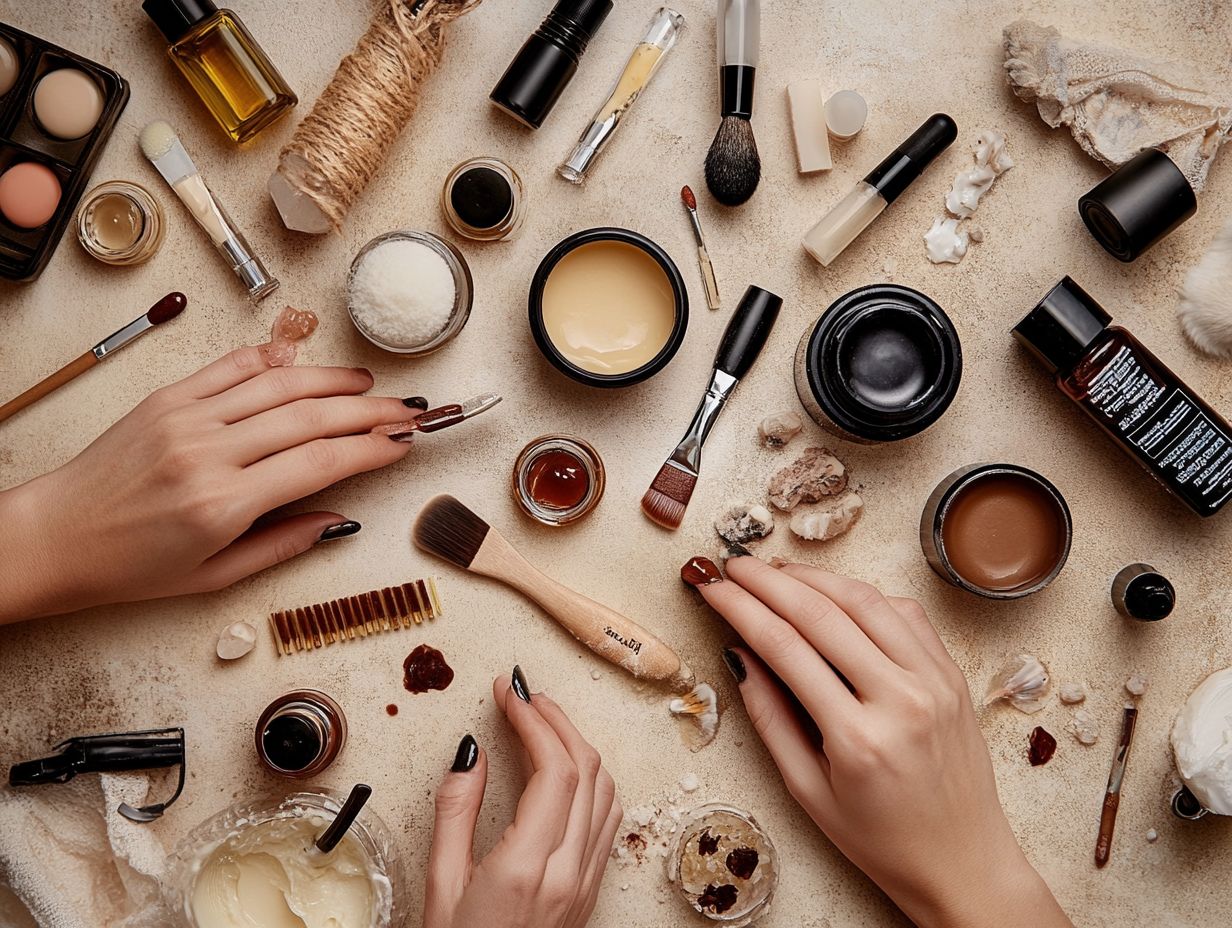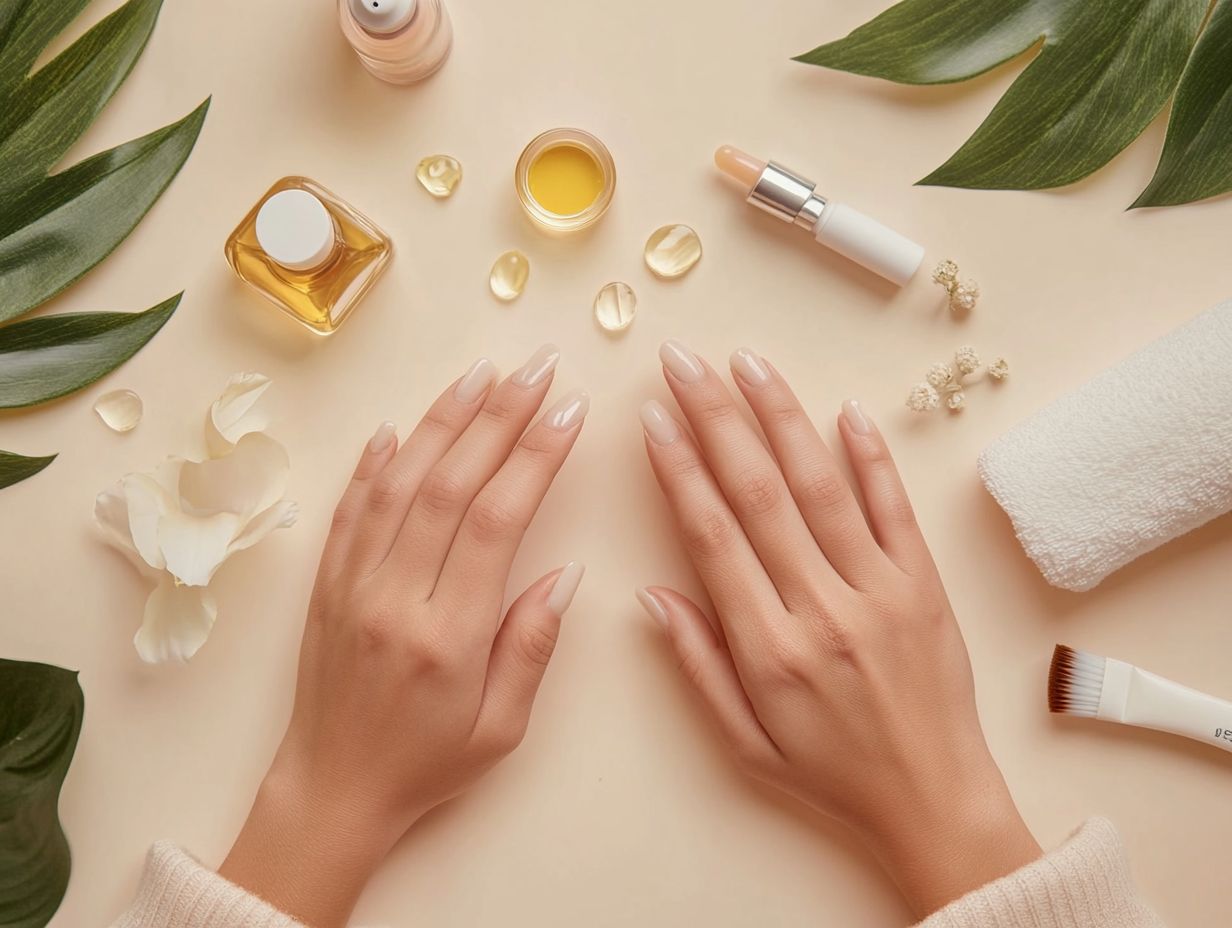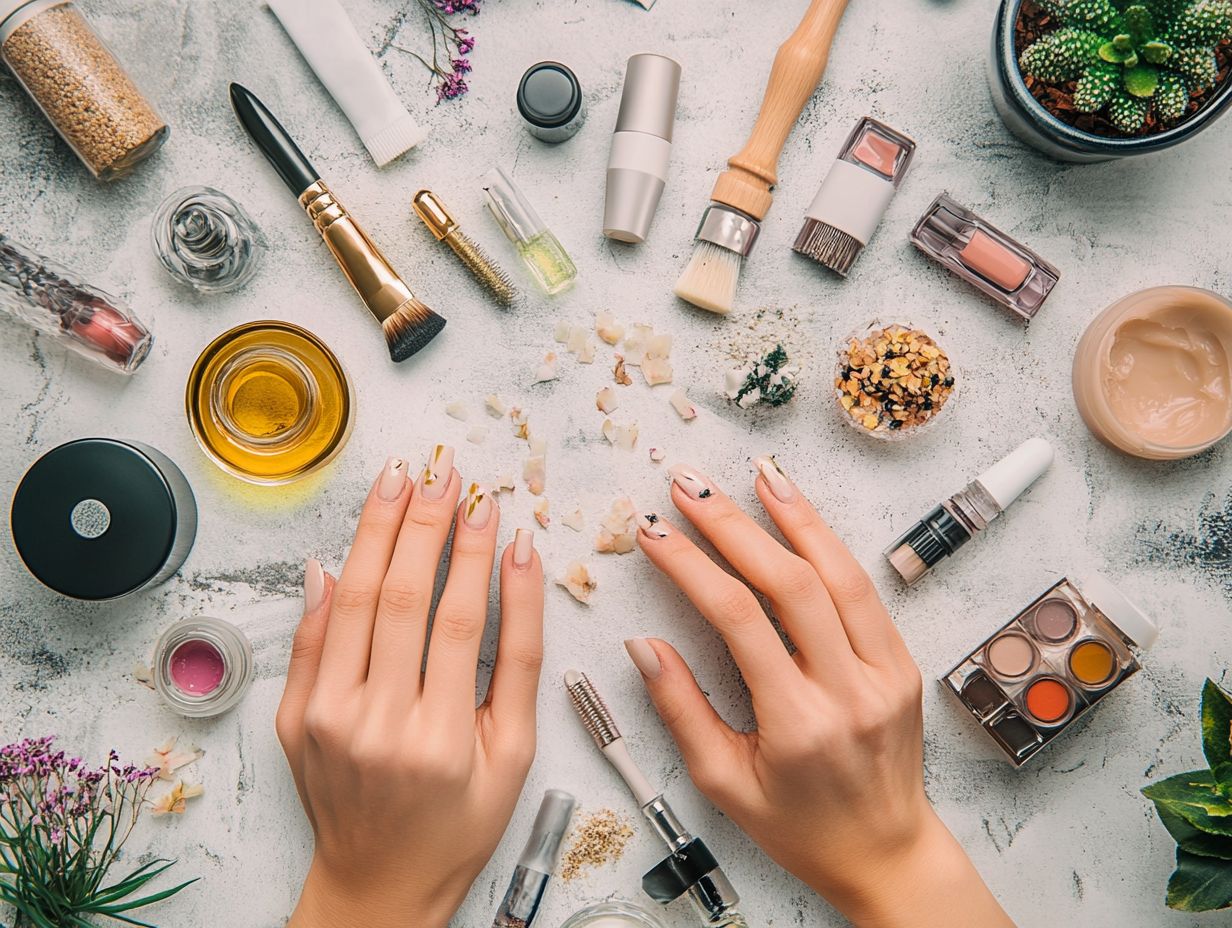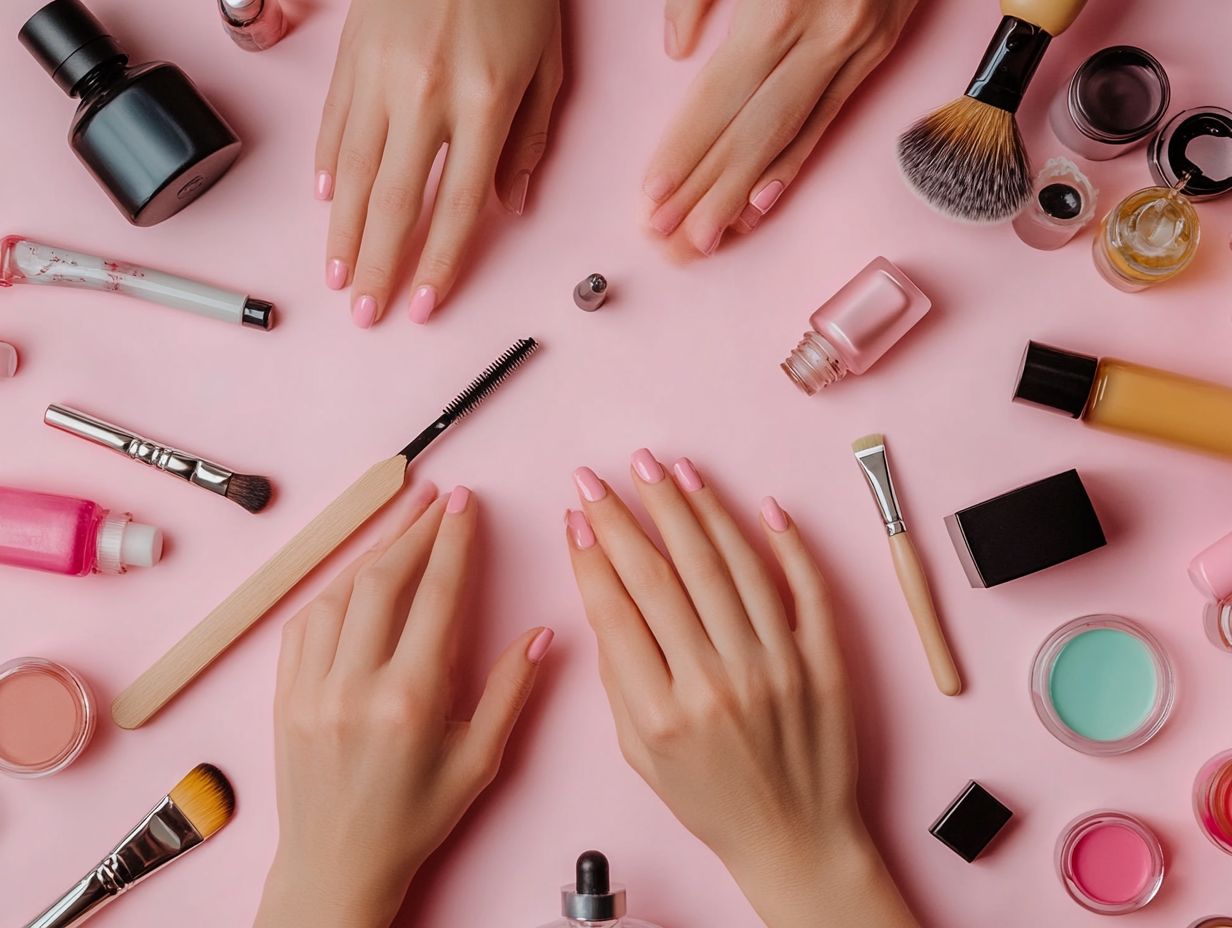Nail issues can be more than just a cosmetic concern; they often signal underlying health problems or poor nail care habits.
Whether you’re dealing with brittle nails, unsightly discoloration, or persistent hangnails, understanding the common causes of these issues is essential.
We will explore effective home remedies, quick fixes for immediate relief, and best practices for maintaining healthy nails.
It’s also important to know when it’s time to consult a professional. Say goodbye to nail woes and hello to beautiful, strong nails!
Key Takeaways:

- Invest in a nourishing cuticle oil to prevent dry and brittle nails, a common cause of nail issues.
- Leaving nail polish on for extended periods can damage the nail bed. Allow your nails to breathe by taking breaks from polish.
- If you notice changes in the color, texture, or shape of your nails, seek professional help to rule out any underlying health issues.
Common Causes of Nail Issues
Nail problems can arise from a variety of common causes, leading to conditions such as brittle nails, weak nails, and nail infections. Factors contributing to these issues encompass environmental influences, physical trauma, and underlying health conditions, including psoriasis and dermatitis.
For example, frequent exposure to harsh chemicals or prolonged contact with water can compromise the integrity of the nail structure, rendering them susceptible to breakage and infections. Individuals with psoriasis may experience nail pitting and discoloration, while dermatitis can induce inflammation around the nail bed, exacerbating the condition.
Onychomycosis, commonly known as nail fungus, represents another prevalent concern, often resulting from fungal infections that thrive in moist environments. Recognizing these interrelated environmental and health-related factors is essential for individuals seeking to maintain healthy nails and prevent conditions such as nail fungus from developing. For more information on how to address this issue, check out the Quick Fixes for Common Nail Problems.
Home Remedies for Nail Problems

Home remedies for nail problems can offer effective solutions for common issues such as weak nails, cracked nails, and hangnails, enabling individuals to enhance their nail care routine through natural means.
Ingredients like moisturizers and oils play a crucial role in strengthening and nourishing the nails. Additionally, products such as Eucerin UreaRepair Plus 30% and acetone-free removers contribute to the protection and maintenance of overall nail health.
Natural Solutions for Common Issues
Natural solutions for common nail issues emphasize the importance of enhancing nail care through moisturizing and nourishing treatments. This approach effectively addresses concerns such as brittle nails, weak nails, and hangnails. By utilizing products like Neutrogena and essential oils, individuals can foster healthier nails and mitigate the risk of future nail problems.
Plus commercially available products, do-it-yourself (DIY) treatments can significantly contribute to maintaining nail health. For example, creating a soak using warm water and olive oil can provide deep moisturization for the nails, while a mixture of sugar and coconut oil can act as a gentle exfoliant, removing dead skin surrounding the nail bed.
Adequate hydration is essential; therefore, drinking plenty of water supports internal moisture, complementing external treatments. It is imperative to establish a consistent routine that integrates these various approaches, as regularity often results in noticeable improvements in nail strength and resilience.
Quick Fixes for Nail Problems

Immediate solutions for nail problems provide relief for conditions such as cracked nails, weak nails, and nail infections, enabling individuals to address their nail concerns promptly.
The use of targeted nail treatments can yield temporary solutions that improve both the appearance and health of the nails while reducing discomfort.
Temporary Solutions for Immediate Relief
Temporary solutions for immediate relief from nail issues, such as cracked nails and nail infections, can significantly enhance nail health and comfort. Products specifically designed for quick application, including nail treatments and protective coatings, serve as effective measures until a more permanent solution is implemented.
For example, over-the-counter antifungal nail lacquers can rapidly address infections, while nourishing oils provide hydration and strengthen cracked nails. These topical treatments are user-friendly, requiring only a few minutes for application, thereby allowing individuals to seamlessly incorporate them into their daily routines.
Additionally, utilizing adhesive bandages can protect damaged nails from further trauma and promote the healing process. By choosing these temporary solutions, individuals can alleviate discomfort and maintain nail integrity while exploring longer-term remedies, ensuring that their nails remain resilient and healthier in the short term.
Preventing Nail Problems

Preventing nail problems is crucial for maintaining healthy nails and avoiding conditions such as nail fungus, hangnails, and psoriasis.
By implementing proactive nail care practices, individuals can safeguard their nails from damage and promote long-term nail health through proper hygiene, moisturizing, and regular maintenance.
Best Practices for Maintaining Healthy Nails
Best practices for maintaining healthy nails combine elements of appropriate nail care techniques and preventive measures aimed at minimizing the risk of nail conditions and infections. Regular moisturizing, the application of high-quality nail treatments, and adherence to good hygiene practices are fundamental components for promoting nail health.
Incorporating a daily moisturizing regimen is essential; utilizing products that contain nourishing oils such as jojoba or vitamin E can significantly improve hydration of both nails and cuticles. Furthermore, selecting an acetone-free nail polish remover is advisable to prevent dryness.
Regular trimming and shaping are also important for maintaining nail strength and preventing issues such as snagging and breakage.
Ensuring that all tools are properly sanitized is critical for maintaining hygiene; using disinfected clippers and files can effectively reduce the likelihood of infections. By integrating these practices into their daily routine, individuals can proactively address common nail issues, thereby ensuring a healthier appearance and feel.
When to Seek Professional Help
Recognizing the appropriate time to seek professional assistance for nail issues is essential for addressing underlying conditions and preventing further complications.
Indicators that necessitate medical attention may include persistent nail infections, severe cracking, or symptoms indicative of underlying health concerns. In such cases, it is advisable to consult a dermatologist or podiatrist for a thorough evaluation and expert guidance.
Signs that Require Medical Attention
Certain indicators suggest the necessity for medical attention regarding nail problems, such as persistent infections, severe brittleness, or unusual discoloration. It is imperative to consult a dermatologist or podiatrist to identify underlying issues and receive appropriate treatments for nail conditions.
Individuals presenting with thickened nails that are painful to the touch or exhibit signs of separation from the nail bed may be experiencing fungal infections or conditions such as psoriasis. Additionally, the presence of ridged or pitted nails could signal a systemic health issue that necessitates further evaluation. Early intervention is essential, as untreated nail disorders can lead to complications, including secondary infections.
Effective treatment options can range from topical antifungal medications to oral prescriptions, and in some cases, surgical intervention may be required. Seeking a professional evaluation not only facilitates targeted care but also ensures a comprehensive approach to overall nail health.


